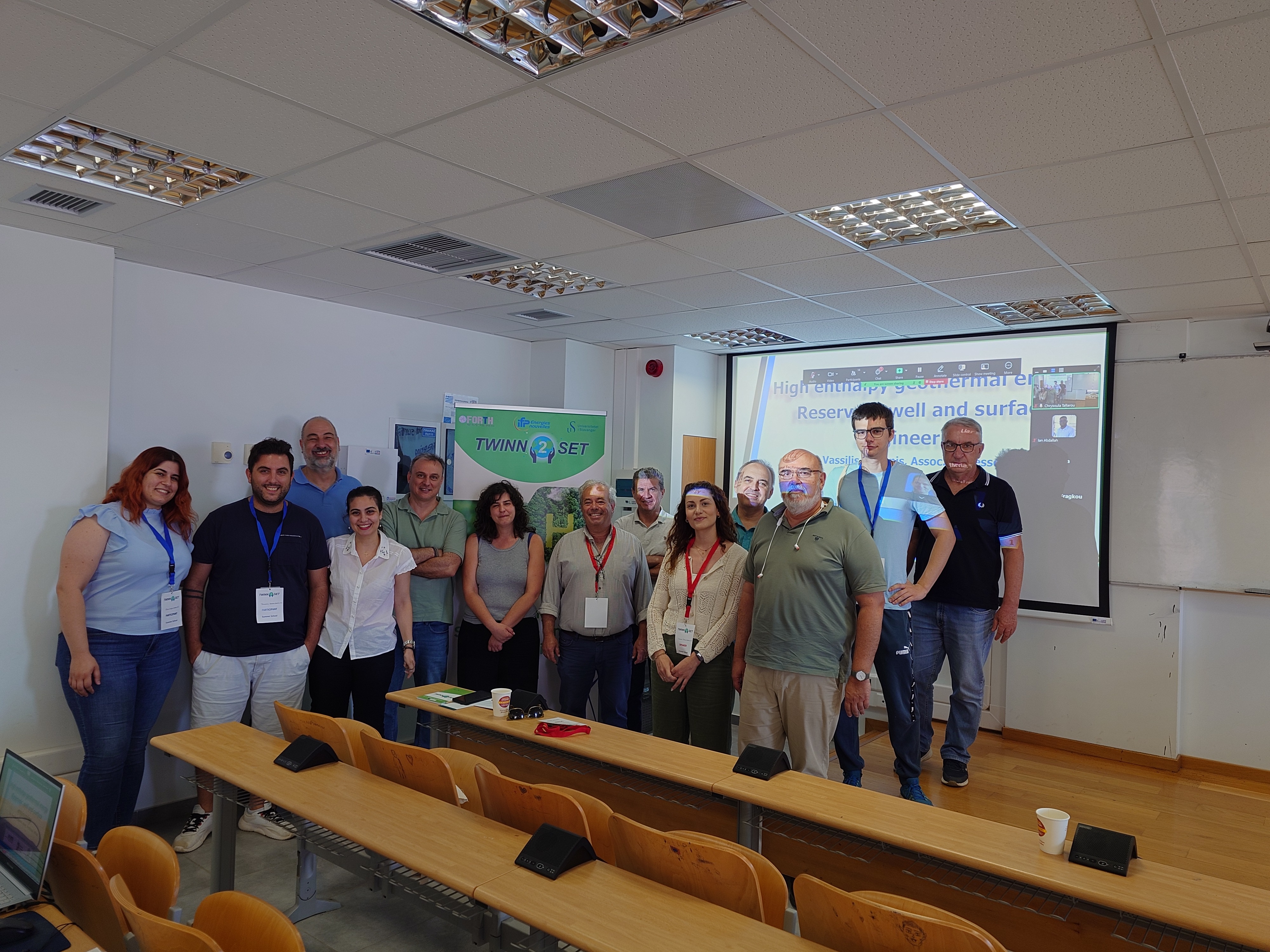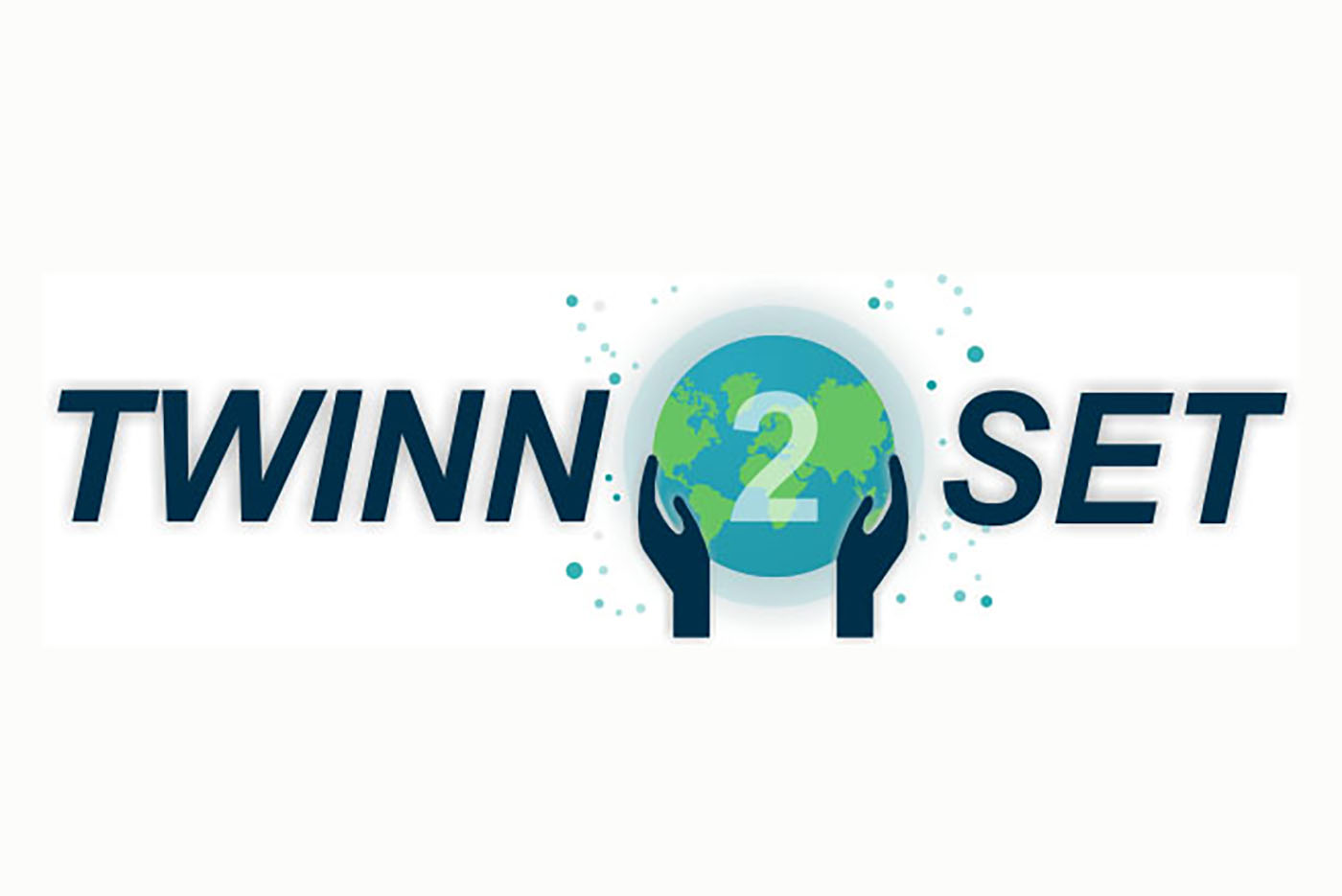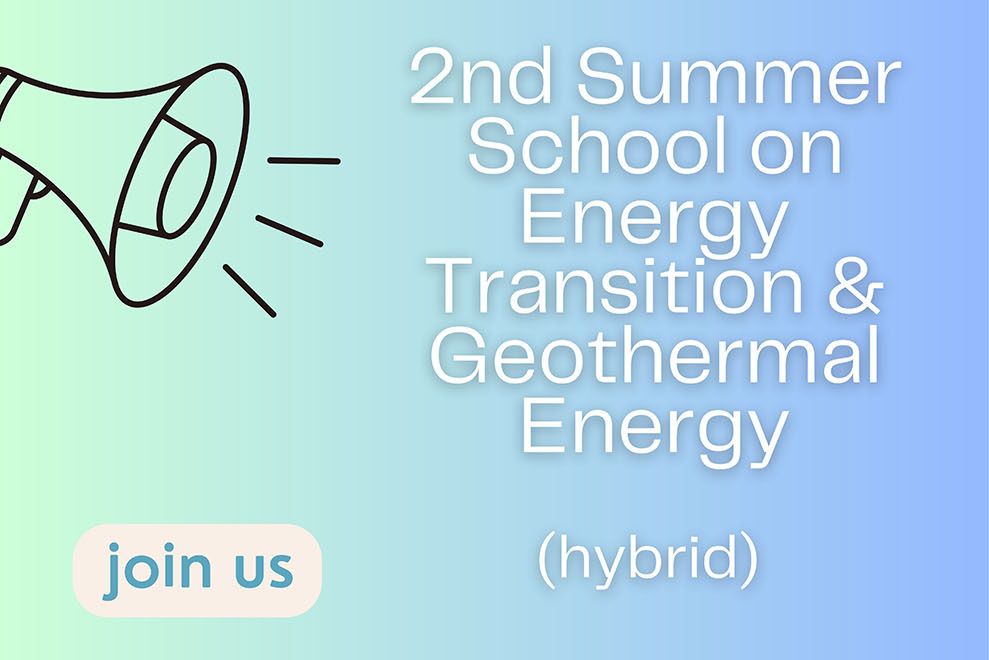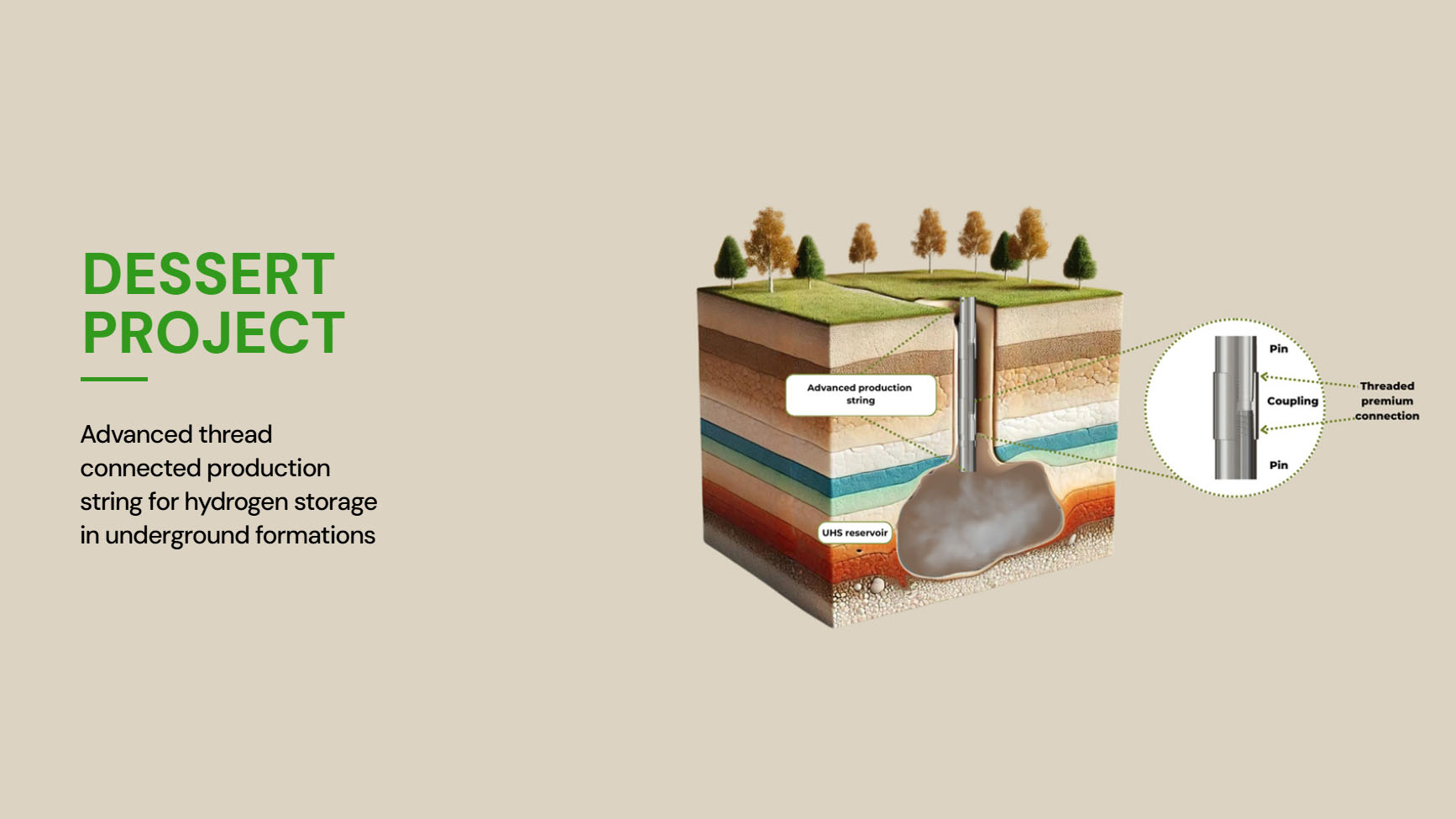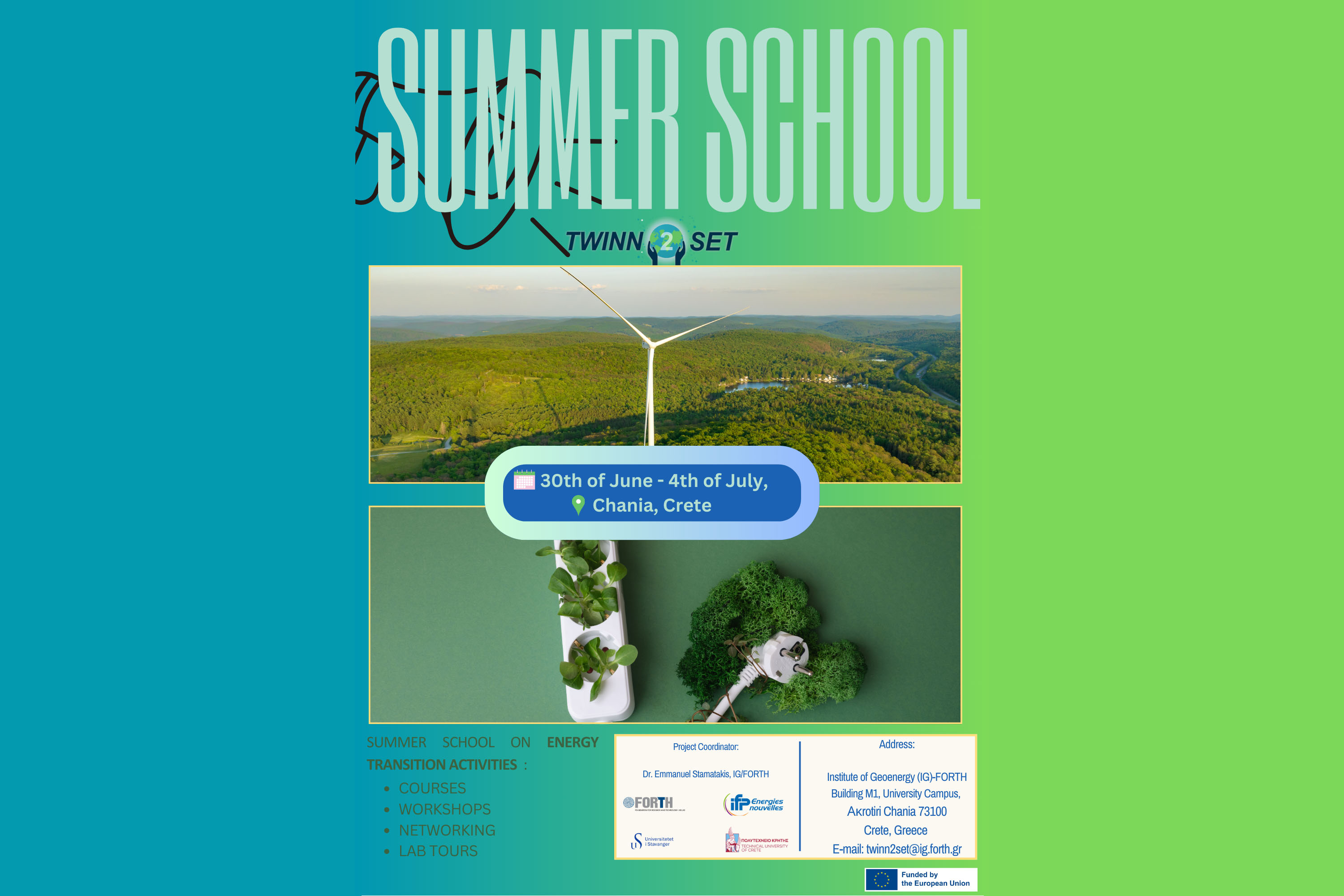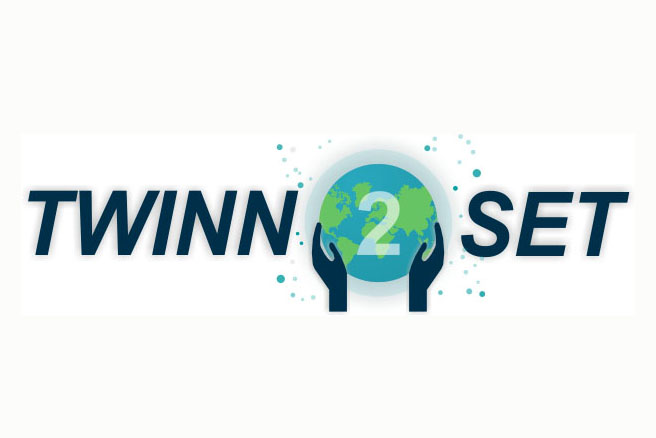
TWINN2SET project: Partners and Objectives
Twinning to Sustainable Energy Transition (TWINN2SET) project will enable the newly established IG/FORTH to participate in the European R&I process on Energy Transition.
The project Twinning to Sustainable Energy Transition (TWINN2SET) is implemented as a partnership between the Greek Institute of Geoenergy of the Foundation for Research & Technology – Hellas (IG/FORTH), the Norwegian University of Stavanger (UiS) and the French Research Center IFP Energies Nouvelles (IFPEN), in the domains of 1) Carbon Capture and Storage (CCS), 2) Deep Geothermal Energy and 3) Subsurface Hydrogen Storage. It consists of a capacity building & mentoring programme in the above three areas which will be complemented by an exploratory project focusing on Hydrogen storage in Geological formations, fostering interdisciplinary competencies at the interplay of a promising energy vector with subsurface reservoir characterisation, modelling and monitoring.
European Union is facing a pressing challenge to transition into a carbon neutral economy 2050, with an intermediate target of 55% CO2 reduction emissions in comparison to 1990. Climate neutrality goals as dictated by the EU Climate Law and the EU’s “Fit for 55” package will be implemented via the EU Green Deal, namely the EU’s industrial strategy. However, careful strategic, large - scale investments in enabling technologies and processes are required which will be relevant to each member state’s strengths and weaknesses. This way, resilient societies can be built around sustainable energy transition pathways for each state with parallel re-direction of resources for transformation of knowledge into technologies and skills of the workforce within sustainable and functioning ecosystems.
Greece is lagging behind in the energy transition process due to a number of reasons such as:
- high share of natural gas in the electricity generation mix on a permanent basis
- use of fossil fuels (lignite) in high-demand periods
- lack of industrial plans to exploit CO2 capture and storage technologies as well as perspectives for CO2 export in other countries
- lack of geothermal energy penetration into the electricity mix
- lack of a national hydrogen strategy (under development)
The country’s Smart Specialisation Strategy for 2014-2020 (the new one is still pending) outlines green Hydrogen storage as part of the supply chain of renewable energy, Carbon Capture and Storage (CCS) as decarbonisation tool of emerging industrial areas whose supply chain is linked to the national roadmap for R&I infrastructures. Most of all it features Geothermal Energy for heat and electricity production[1].
Furthermore, transitioning into carbon neutrality requires the development of technologies with the potential of mitigating CO2 such as Carbon Capture and Storage (CCS), as certain industries, namely the heavy emitting ones such as steel, cement, chemicals will be the last to run fully on 100% renewable energies. Furthermore, CCS can contribute up to 10 % of CO2 emissions cuts by 2050, fulfilling the Paris Agreement of restraining the rise of global average temperature below 2 °C. On the other side, being able to totally fuel the EU economy by renewable energy, needs, among others, large-scale Hydrogen storing capacity in the subsurface as part of the supply chain of hydrogen (H2 production, transmission, storage, electricity production). In order for hydrogen to play a meaningful role in the energy system, the demand and supply have to be balanced by large hydrogen storage capacities that may be provided by salt caverns, depleted gas field and rock caverns[2]. In terms of the energy mix, according to the European Commission, Geothermal energy, namely the heat stored below the earth’s surface at various depths, can be used to generate electricity or produce heat. However, there are challenges in terms of our understanding of its environmental and societal impact in order to integrate it into a supply chain for direct use of heat and for electricity generation.
Therefore, geosciences play a fundamental role in research activities tackling important energy transition themes through the use of underground resources, such as the geological storage of CO2 and hydrogen and geothermal energy. This is the foundation of the project Twinning to Sustainable Energy Transition (hereinafter TWINN2SET). The project is implemented as a partnership between the Greek Institute of Geoenergy of the Foundation for Research & Technology – Hellas (IG/FORTH), the Norwegian University of Stavanger (UiS) and the French Research Center IFP Energies Nouvelles (IFPEN), in the domains of 1) Carbon Capture and Storage (CCS), 2) Deep Geothermal Energy and 3) Subsurface Hydrogen Storage. It consists of a capacity building & mentoring programme in the above three areas which will be complemented by an exploratory project focusing on Hydrogen storage in Geological formations, fostering interdisciplinary competencies at the interplay of a promising energy vector with subsurface reservoir characterisation, modelling and monitoring.
IFPEN and UiS, as the advanced partners of this Twinning exercise, are already experts in energy transition at the individual technologies as well as at system level (transformation of scientific knowledge for national policy roadmaps and industrial development), following respective national policies. France, by way of EU Green Deal and the French Recovery plan favoured the development of CCS, Geothermal and H2 activities for the next decades planning to devote > €30 billion until 2030 while green hydrogen will have a budget equal to €9 billion until 2030. On the other hand, the extension of Norway’s Climate Action Plan is being consolidated by advancing technologies for capture and storage of CO2 (Norway’s National Plan), use the advanced Norwegian drilling technology to exploit geothermal configurations (Norwegian Energy Policy) and rely on Hydrogen as a medium for creating economic value for Norwegian businesses (Norwegian Hydrogen Strategy). The domains involved in the TWINNS2ET project coincide with the advanced partners’ national policies that lay the ground for the eventual phasing out of fossil fuels.
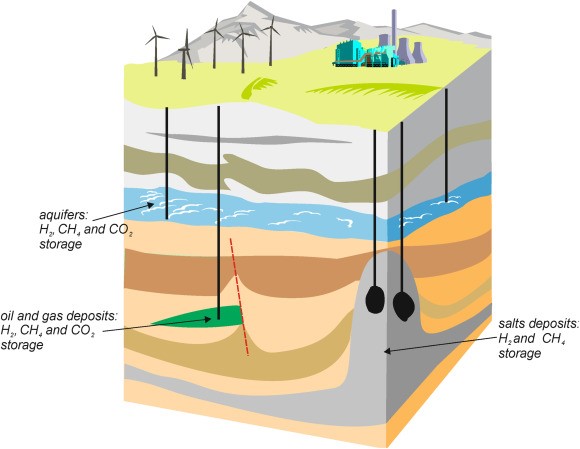
TWINN2SET project will provide a coherent network that will strengthen interactions between members of the consortium. More specifically, TWINN2SET will enable the newly established IG/FORTH to participate in the European R&I process on Energy Transition, through the following integrated activities:
- Strengthen its scientific and technical expertise in Geothermal Energy, CCS and Underground Hydrogen Storage, through joint work in teams with internationally leading scientists through staff exchanges, technical online courses on geothermal formations and processes, expert visits and field trips to geological sites of interest
- Raise the scientific profile of IG/FORTH individual staff, especially of the younger researchers, through training and mentoring for joint publications by the internationally leading counterparts, soft skills development through a number of dedicated workshops ranging from gender aspects, responsible research and innovation to the hydrogen economy at system level
- Contribute to the training of the new generation of future human capital, or reskilling current professionals, by re-orienting existing scientific knowledge to be applicable in the energy transition, through dedicated, industry-driven Massive Open Online Courses in geothermal energy and properties of geological storage formations
- Raise the international visibility of IG/FORTH, through joint contribution to international conferences and membership to important industry associations
- Increase IG/FORTH ability for competitive funding through dedicated trainings on strategic mapping of international funding opportunities, proposal preparation and grants management, formation of a dedicated task force as well as joint participation in Pillar 2 calls of Horizon Europe.
- Future joint collaboration between the partners of the consortium through joint case studies in geothermal energy and CO2 sequestration (with IFPEN) and strategic EU calls of interest (Teaming for Excellence) (all partners)
IG/FORTH is a recently established institution counting no more than a few months. It is the successor of the former Institute of Petroleum Research established in 2019 as the 8th Institute of the Foundation for Research and Technology-Hellas (FORTH) which is based at the Island of Crete. It is the result of the joint forces of FORTH and the School of Mineral Resources Engineering of the Technical University of Crete. IG/FORTH is now repositioned, as suggested by its name, to play an active role in the energy transition at regional and national level. IG/FORTH is positioned at the interplay of geology, geochemistry, geophysics and chemical engineering with the purpose of generating energy-related research for the supply of energy by geological resources, namely geothermal as well as novel energy technologies for the capture and storage of carbon dioxide (CCS) and alternative fuels such as hydrogen production and hydrogen storage in geological media. Most of these novel directions capitalise on the expertise from sustainable oil and gas research and extraction methodologies. They are complemented by expert knowledge on impact assessment of the energy industry by Life Cycle Assessment and the economy through techno-economic analysis.
IG/FORTH as a new Institution, is focusing its activities along the following domains (some of these will be reinforced by the TWINN2SET project):
- New energy carriers: Hydrogen and ammonia can provide a clean, sustainable and flexible option for clean energy
- Alternative fuels: Biofuels, and methanol produced from biomass or CO2 and hydrogen as candidates for meeting the demand side of the transport sector
- Geothermal energy: High enthalpy geothermal fields with temperature > 250 oC are located in high depths. Using the drilling methods from the oil and gas industry, extraction and usage of geofluids can provide electrical energy, heating – cooling of building stock, desalination of sea water as well as meet the energy needs of greenhouses and fishing sector.
- Carbon, Capture, Storage and Utilisation (CCUS): This is multi-step process beginning with CO2 capture from major emitting industries (power plants, cement, chemicals), transportation in a compact form, storage in geological media and transformation into energy carriers (methane, biogas). It should be noted that CCUS will be necessary even by 2050, despite the high gains of energy efficiency and the increased penetration of renewables in the energy mix. Carbon-intense sectors will need CCUS in their decarbonisation pathway.
- Environmental Impact Assessment Studies: They constitute an indispensable instrument for identifying, assessing and managing the impact of the alternative energy systems that are key for sustainable energy transition.
- Circular economy: Previously distinct sectors of the economy will become interrelated, where the waste (i.e heat) in one sector (i.e. cement industry) can be a resource for another requiring new value-chains, new economic models (max utility of materials at technical and biological cycles) and new business models.
Furthermore, FORTH, the host organization of IG, is one of the largest research centers in Greece, with important distinctions in Nature Index (2017), 294 participations in Horizon 2020 (2nd in rank among Greek organisations and 78th among all countries’ participants), plans to play an active role in engineering energy transition in the regional – national landscape. It aims to establish a Research & Innovation Center on Sustainable Energy Transition (R&I SET) and has secured an investment by the EIB investment in the order of 10 Meuro. The center will draw interdisciplinary competences by a number of FORTH’s institutes (Electronic Structure and Laser (IESL), biotechnology (IMBB), chemical engineering (ICE-HT)) with IG playing a leading role. It should be noted that UiS and IFPEN are among the supporters of the R&I SET center (others include Hydrogen Europe, IFE, SINTEF, Heriot-Watt University, NCSR DEMOKRITOS).
Building on IG/FORTH’s strengths and weaknesses, this twinning exercise aims to bring this new institute the necessary traction to become up to par with the rest of FORTH’s recognised institutes and positioned in the EU R&I map of sustainable energy transition.
[1] National strategy for Research & Technological Development for Smart Specialisation, 2014-2020
[2] Hydrogen generation in Europe: Overview of costs and key benefits, ASSET project, Publications Office of the European Union (2020)

